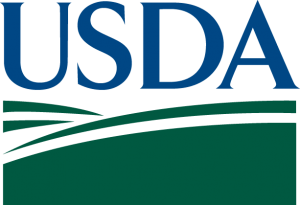Niman Ranch Calls Prop 12 Ruling ‘Watershed Moment for Animal Welfare’
Niman Ranch, the humane animal care leader, today released the following statement in response to the U.S. Supreme Court’s decision on Proposition 12.
“This is a truly watershed moment for animal welfare. Since day one, Niman Ranch has been one of the only companies to ban the use of crates for raising hogs and today our more than 500 independent family farmer partners proudly raise their pigs 100 percent crate free. We applaud the Supreme Court’s decision and this historic moment for humane animal care.”
– Chris Oliviero, General Manager, Niman Ranch
California’s Proposition 12, passed in 2018, requires farmers to provide more space for egg-laying hens, breeding pigs and calves raised for veal including that these animals be able to stand up, lie down, turn around and extend their limbs. It would also ban the sale of products in the state that do not meet the new standards. On May 11, the U.S. Supreme Court upheld Proposition 12 as constitutional.
Niman Ranch is a network of independent family farmers and ranchers raising pork, beef and lamb humanely and sustainably, with no antibiotics or added hormones—ever. Niman Ranch is the largest farmer and rancher network in North America to be Certified Humane, an animal welfare certification considered rigorous and meaningful by the American Society for the Prevention of Cruelty to Animals. The company has always been 100 percent crate free and goes much further with animals raised outdoors or in deeply bedded pens, with no tail docking, teeth clipping or other standard industry practices.
Niman Ranch is the only pork company to submit an Amicus Brief to the Supreme Court in support of Proposition 12. Its products are available at values driven restaurants and grocers across the country. Customers include Shake Shack, Chipotle and ButcherBox.
For more news of interest to the specialty food industry, subscribe to Gourmet News.
USDA Sets Virtual Meeting on Urban Agriculture
 The U.S. Department of Agriculture encourages urban producers, innovative producers and other stakeholders to submit comments for and virtually attend the fifth public meeting of the Federal Advisory Committee for Urban Agriculture and Innovative Production on April 18.
The U.S. Department of Agriculture encourages urban producers, innovative producers and other stakeholders to submit comments for and virtually attend the fifth public meeting of the Federal Advisory Committee for Urban Agriculture and Innovative Production on April 18.
“The Federal Advisory Committee is a valuable source of on the ground information and recommendations for USDA,” said Terry Cosby, chief of USDA’s Natural Resources Conservation Service, which houses USDA’s Office of Urban Agriculture and Innovative Production. “I encourage members of the public to attend and submit comments for the Committee to help us better serve urban and innovative producers and their communities.”
The Committee is part of USDA’s efforts to support urban and innovative agriculture, creating a network for feedback. Members include agricultural producers and representatives from the areas of higher education or extension programs, non-profits, business and economic development, supply chains and financing. The committee last met in February 2023.
Topics for the upcoming meeting will include addressing public comments and discussing the following recommended topics:
- A new public/online database for grant and funding programs
- Farm Service Agency loan programs
- Supplemental Nutrition Assistance Program
- Food loss and waste; and
- Food labeling.
The Committee will deliberate and vote on proposed recommendations and address public comments during the meeting. USDA will share the agenda between 24 to 48 hours prior to the meeting.
The virtual meeting runs from 3 p.m. to 5 p.m. Eastern on April 18. To attend virtually, register by April 18 on the committee’s webpage. To submit comments, send by 11:59 p.m. ET on May 2 through the Federal eRulemaking Portal. Docket NRCS-2023-0006.
For special accommodations, contact Markus Holliday.
Additional details are available in the Federal Register notice.
For more news of interest to the specialty food industry, subscribe to Gourmet News.
FDA Searching for Deputy Commissioner for Human Foods
 The U.S. Food and Drug Administration has begun a national search for a new deputy commissioner for human foods and is providing an update on the proposed restructuring of the agency’s Human Foods Program and Office of Regulatory Affairs to enhance coordination, prevention and response activities.
The U.S. Food and Drug Administration has begun a national search for a new deputy commissioner for human foods and is providing an update on the proposed restructuring of the agency’s Human Foods Program and Office of Regulatory Affairs to enhance coordination, prevention and response activities.
“My search for a new deputy commissioner for human foods is underway, the first recruitment effort open to both external and internal candidates under the agency’s expanded Title 21 hiring authority for a foods-related position,” said FDA Commissioner Robert M. Califf, M.D. “I’m looking forward to starting the interview process and making a selection for this important position as soon as possible.
“There have also been a number of questions about the proposed operational changes for ORA and how these plans will work with changes to the Human Foods Program. I cannot stress enough that my vision is focused on a new, agency-wide model where the activities and responsibilities of the regulatory programs and ORA are better synced to improve efficiency and effectiveness with clear decision rights so that everyone knows who has authority.”
For the proposed Human Foods Program, one key to success will be an empowered deputy commissioner for human foods who will report directly to the FDA commissioner. The agency is focused on identifying a candidate that has the expertise to provide leadership over the FDA’s nutrition and food safety programs (including programs aimed at preventing and responding to chemical, microbial and other hazards). The ideal candidate will have executive-level and real-world experience sufficient to lead the newly envisioned Human Foods Program and its vast remit. This individual will also have clear line of authority over the proposed Human Foods Program, which would include the existing components of the Center for Food Safety and Applied Nutrition, the Office of Food Policy and Response and certain human foods-related components of ORA.
To ensure the new Human Foods Program and all other regulatory programs at the FDA are successful, work on an agency-wide transformation effort of how the programs and field functions are organized and operate is underway. The FDA’s proposal will create a new model that better integrates ORA’s enterprise-wide expertise in field-based operations with product subject matter experts who sit in all the agency’s programs. The deputy commissioner for human foods and other program leads will be charged with setting strategic direction for food inspections and have authority over program resource allocation. To achieve these goals, the agency has started the process of:
- Assessing specific functions of ORA, CFSAN and OFPR to be unified into a new Office of Integrated Food Safety Systems Partnerships that will engage with state, local, tribal, and territorial food safety regulatory partners. The assessment will also include how best to enhance connectivity with international food safety partnership programs.
- Analyzing inspection and compliance functions that sit within both ORA and program offices across the agency to determine opportunities to streamline operations and clarify decision-making authority at each step of the inspection process as well as integrate new automation and information technology support. The new processes will enable ORA and program personnel to function as a multidisciplinary team, eliminating sequential steps, immediately bringing the best expertise to bear on the problem at hand, and speeding decisions.
- Determining how best to empower the deputy commissioner for human foods and leaders of other programs, along with the associate commissioner for regulatory affairs, to oversee program and field resource allocation, including publicly mapping the budget to functional activities to provide clarity on resource allocation.
- Ensuring seamless coordination across the FDA and state-operated food laboratory operations by evaluating the foods laboratory programs, including the relationships, roles, and responsibilities among CFSAN, CVM, ORA and state-operated laboratories.
- Improving the FDA’s ability to conduct risk prioritization to deliver the highest public health benefit by performing an extensive evaluation of how the Human Foods Program accomplishes risk management, particularly risk prioritization, given the multitude of demands and the scarce resources, and how this can be used to guide dynamic work planning and resource allocation.
- Planning for greater enterprise transformation of certain ORA IT functions, which will be coordinated with the FDA’s Office of Digital Transformation. This move builds on the existing project to create an enterprise-wide platform for managing inspections and compliance activities. ODT will drive upgrades to FDA-wide IT systems.
- Evaluating training programs, including for FDA investigators, to see how they can best serve the needs of both the FDA, regulatory partners and regulated industry. This will include assessing whether some training functions or roles should be unified into the Human Foods Program and other product programs.
In addition, the FDA is announcing that this vision will include moving cosmetics regulation and color certification functions out of CFSAN and into the Office of the Chief Scientist. This proposed move will better align the expertise of the agency’s cosmetics subject matter experts with the Chief Scientist who is focused on research, science, and innovation that underpins the agency’s regulatory mission, and recognize the evolution and innovation in this product space. Further, this shift will leverage the FDA’s areas of expertise across the agency as it works to implement the Modernization of Cosmetics Regulation Act of 2022. The office will closely collaborate with the FDA’s Human Foods Program, Center for Drug Evaluation and Research, Office of Minority Health and Health Equity and Office of Women’s Health.
“Our proposal specifically tackles issues identified in two independent evaluations of our food programs, one conducted by the Reagan-Udall FoundationExternal Link Disclaimer and an internal evaluation of the agency’s infant formula response. We’ve heard loud and clear that the current resource distribution and operational model between the FDA’s regulatory programs and field operations are siloed and there’s too much duplication. We intend to fix this and strengthen both the regulatory programs and field force,” Califf said. “Both subject matter experts in the programs and the expertise of our investigators in the field will see more interaction as part of multidisciplinary teams that have clarity on who is in charge of making decisions.”
The FDA is seeking to finalize its proposal this fall. This process includes the development of a reorganization package that contains the newly designed structure, an established budget and a detailed mapping and crosswalk of staff from the current to new organization. The package then undergoes a thorough review before advancing to Congress for a 30-day notification period where members may raise any concerns that the FDA may need to address. Afterward, the FDA will issue a Federal Register Notice, provide notification to and engage, as needed, in negotiations with the Unions for impacted staff, prior to initiation of the new proposal. The FDA will continue to engage with stakeholders throughout this process.
For more news of interest to the food and beverage industry, subscribe to Gourmet News.







